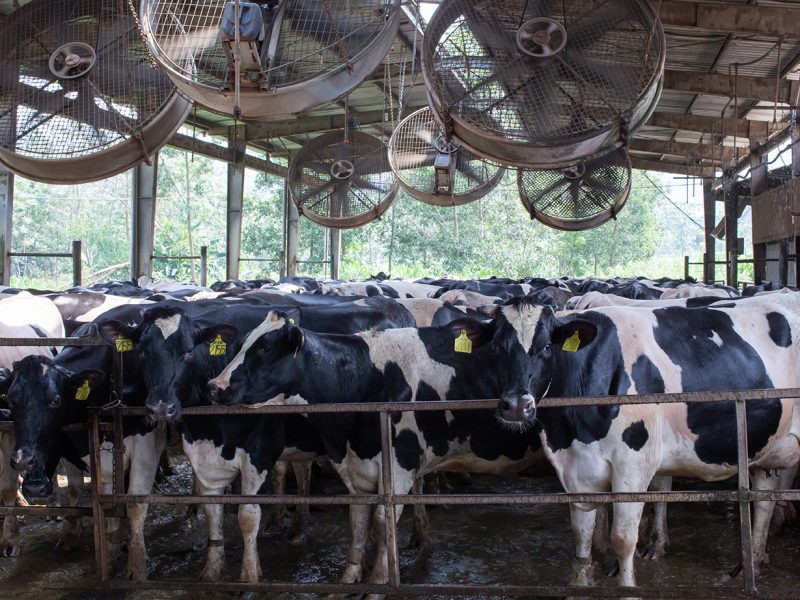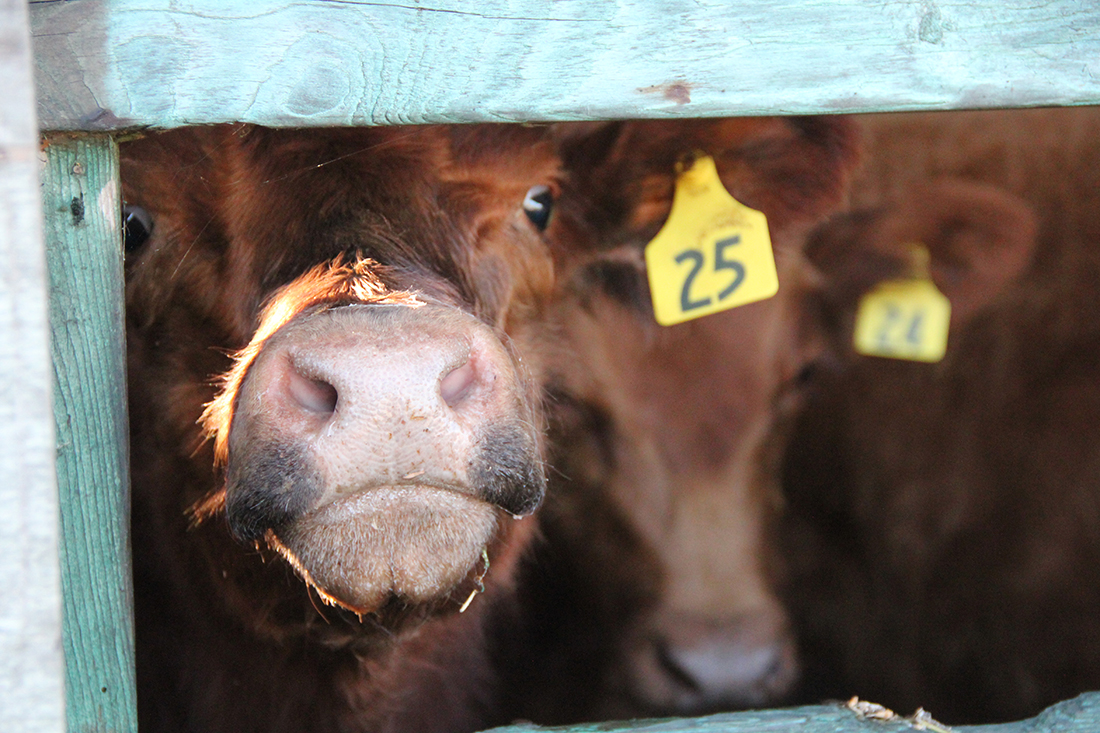This summer’s high temperatures have yet to match last summer’s heat dome, but producers and the provincial government aren’t letting their guard down.
“So far, the animals are holding okay in terms of production but … we’ve been watching the forecast carefully,” says BC Dairy vice-chair Sarah Sache, who farms in Rosedale.
Temperatures in the eastern Fraser Valley reached 37° Celsius at the end of July, and additional dry, hot weather was expected in early August.
“As the length of this time prolongs we’re definitely starting to see some signs that they’re not going to be holding their production,” Sache says of her animals.
Sache says more people are looking to add heat mitigation features to their barns to keep animals cool, something her farm did several years ago.
“We already had fans in the main cow barn and a misting system that we installed in there probably seven or more years ago,” Sache says. “A lot more people have been putting [misters] in after what happened last year. I think if you’re doing new construction, specifically, climate considerations are being taken into account.”
In response to the increasing weather variability, the province is making funding available the Extreme Weather Preparedness for Agriculture pilot program. It will provide up to $1.5 million for projects this year to help producers conduct risk assessments and upgrade infrastructure.
“It’s really positive to see a program like this put forward to get farmers thinking in terms of prioritizing these projects,” says Sache. “I like that it’s a pilot project [where] feedback can be provided as we work through … because we haven’t had a program like this before and I think likely we will need to be making adjustments for a period of time.”
The province is accepting applications through August 15. It says future intakes are anticipated in 2023 and 2024.
“We need to know that it’s there and to be able to plan for it,” says Sache, who notes that the short window this year may catch producers short. “Most people are in their barns looking after their animals, so I think getting into that headspace for future will be very positive.”
The province also recently launched the Beneficial Management Practices program to help producers protect their operations by adopting regenerative agricultural practices, improving drought resilience and reducing greenhouse gas emissions.


 Larger rootstocks could alleviate heat stress
Larger rootstocks could alleviate heat stress